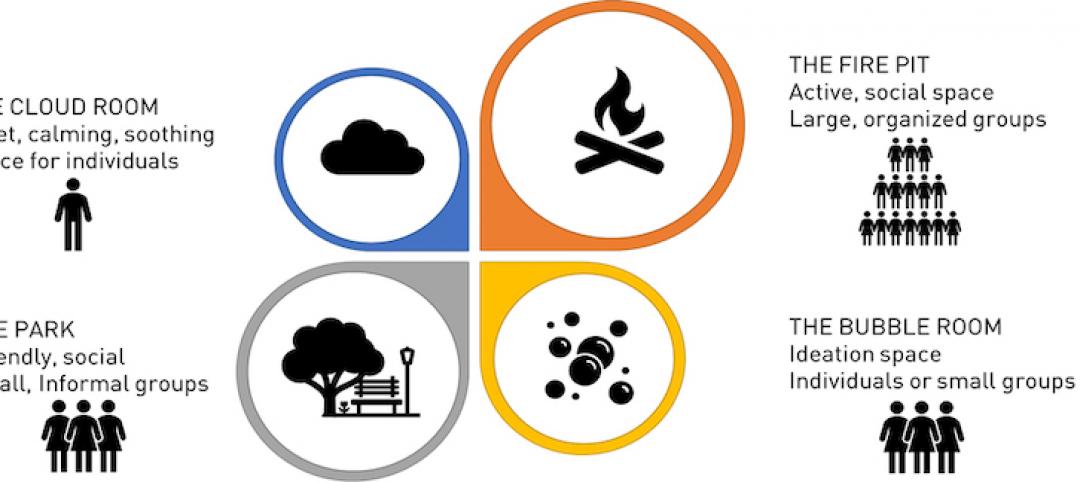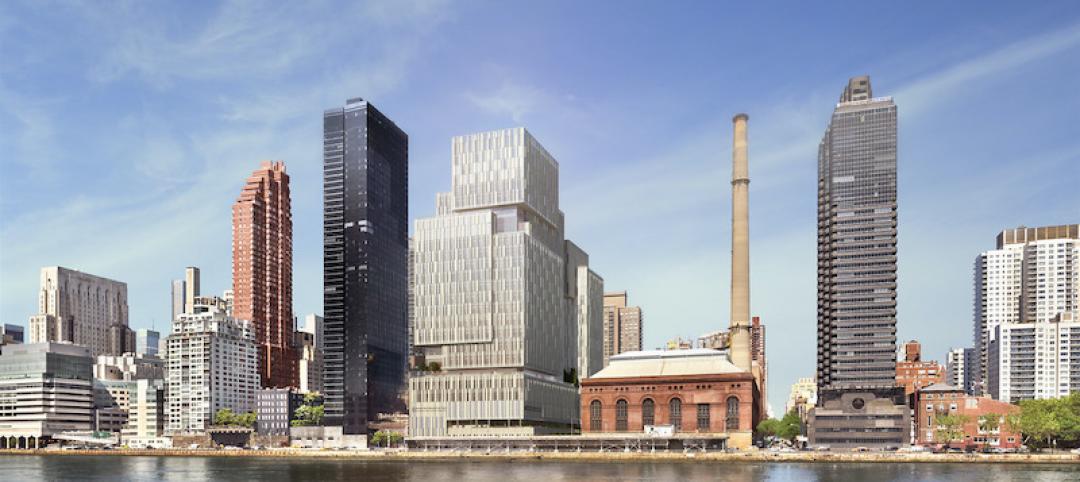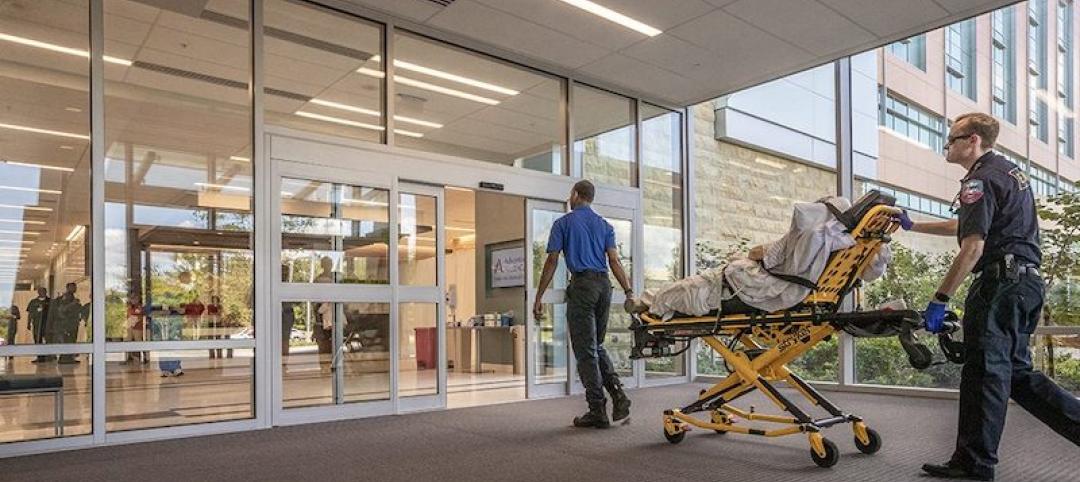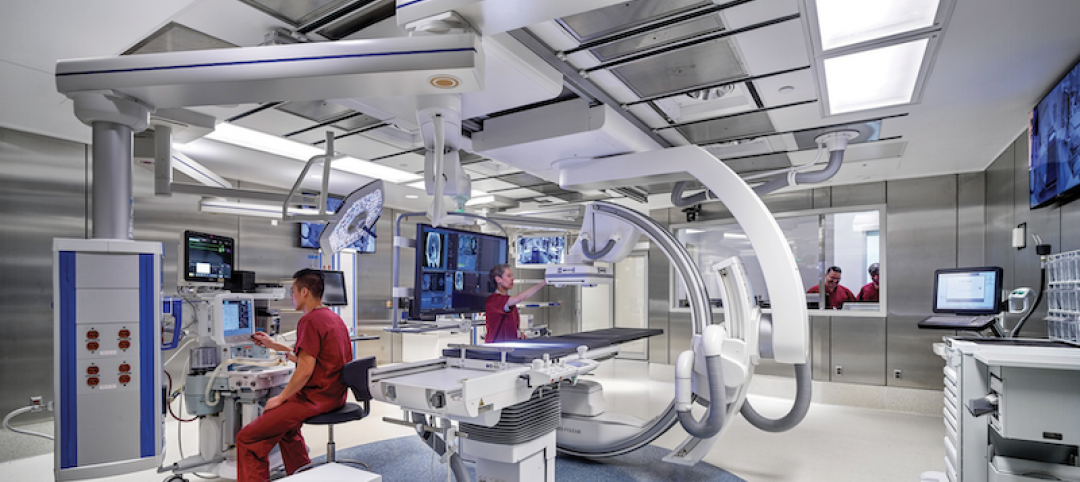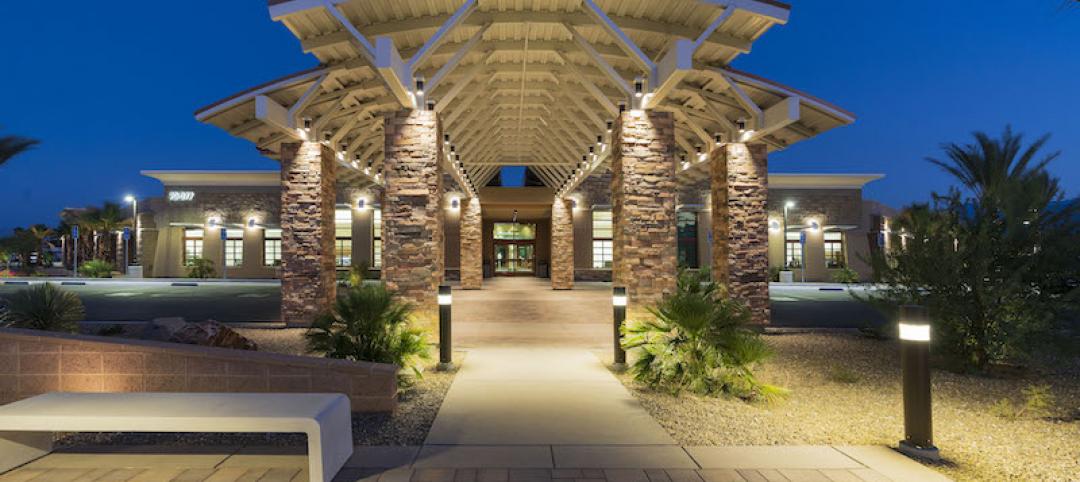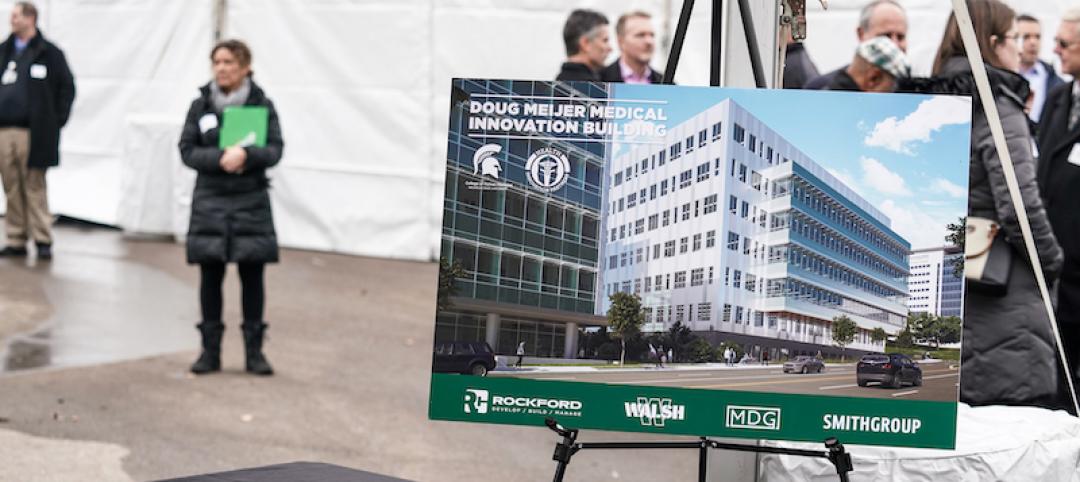Last spring, the U.S. Navy Facilities Engineering Command (NAVFAC) awarded a five-year, $50 million architect-engineering services contract to a joint venture between WSP USA and HKS for the Command’s medical facilities projects around the world.
This so-called indefinite delivery/indefinite quantity (IDIQ) contract covers hospitals, dental clinics, medical clinics, veterinary clinics, laboratories, sustainment/restoration/modernization projects, military construction projects, and medical studies.
The contract is not exclusive to the two firms, but it lets NAVFAC assign certain projects to them. NAVFAC selected seven projects under this contract for 2018, including a 477,000-sf, $298 million health, education, and research facility for the Uniformed Services University at Walter Reed National Military Medical Center in Bethesda, Md.; and a 44,000-sf medical and dental clinic in Jacksonville, N.C. There’s also a renovation component, plus four research studies that will help define future projects.
See Also: N.Y. builder pushes to get military trauma centers up and running quicker
WSP, which has been active in the healthcare sector for a quarter century, decided to compete for this contract after noticing that the AE presence in the government sector was “not as strong” as in other sectors, says Nolan Rome, PE, U.S. Healthcare Director for WSP’s Dallas office.
Rome says that he had seen IDIQ-type contracts in the past and thought that a combination with an architecture firm might work for both companies and the client. Over the previous seven years, WSP and HKS had collaborated on 42 healthcare projects for the military and private sector.
“We promised a one-stop shop for whatever the government would need, and they perceived us as something new and different,” says Jim Whitaker, AIA, DBIA, Principal and SVP with HKS. “Now, we’re the Navy’s go-to task-order vendor.”
NAVFAC follows a Uniform Facilities Criteria that touches on everything from design to scheduling. It also leans toward design-bid-build delivery, whereas the U.S. Army Corps of Engineers and the Veterans Health Administration prefer design-build. (Rome says WSP will self-perform 98% of the work under the NAVFAC contract.)
Each agency imposes spending limits, notably a 6% cap on total cost design services. “We’ve responded to those parameters with an integrated design approach,” says Alan Davis, Vice President for WSP’s Built Ecology, a national practice based on integration between architect and engineer.
Whitaker says that having a predetermined cost structure and pre-existing relationship can “make procurement easier.”
HKS and WSP have been talking with other government agencies about setting up similar contractual arrangements.
Related Stories
Healthcare Facilities | Feb 27, 2020
Milieu: Creating restorative environments in behavioral health
It’s time to take a closer look at the collection of therapeutic settings known as milieu.
Healthcare Facilities | Feb 11, 2020
New York City’s largest freestanding cancer center opens
The building creates a model for 21st century cancer care.
Healthcare Facilities | Feb 3, 2020
China builds 645,000-sf coronavirus hospital in 10 days
The project began construction on Jan. 23.
Healthcare Facilities | Jan 30, 2020
The complex dance of healthcare transitioning
Hospital employees, though excited about technological advancements, are expected to navigate a new workplace and care for their patients at the same time, all while training on new equipment and navigating a new building.
Healthcare Facilities | Jan 15, 2020
Top 4 healthcare design trends that will shape medical planning in the 2020s
For patients and healthcare staff, these developments will be most evident in new tools, such as robotic surgical tables and intra-hospital delivery drones, that improve healthcare services and outcomes.
Architects | Jan 6, 2020
Merger expands HED’s presence in SoCal
Puchlik Design Associates, its new addition, specializes in healthcare design.
Healthcare Facilities | Nov 26, 2019
Grand Rapids, Mich., is striving to emerge as a health research and innovation space
Michigan State University is part of a development team for a new life sciences building.
Healthcare Facilities | Nov 6, 2019
A new hospital tower will serve women and children exclusively in the expanding San Antonio market
This $500 million project represents the next phase in the hospital system’s capital improvement program.
Healthcare Facilities | Nov 5, 2019
UNC Health Care’s Surgical Tower set to begin construction
Skanska USA will build the project in three phases.
Healthcare Facilities | Oct 4, 2019
Heart failure clinics are keeping more patients out of emergency rooms
An example of this building trend recently opened at Beaumont Hospital near Ann Arbor, Mich.



